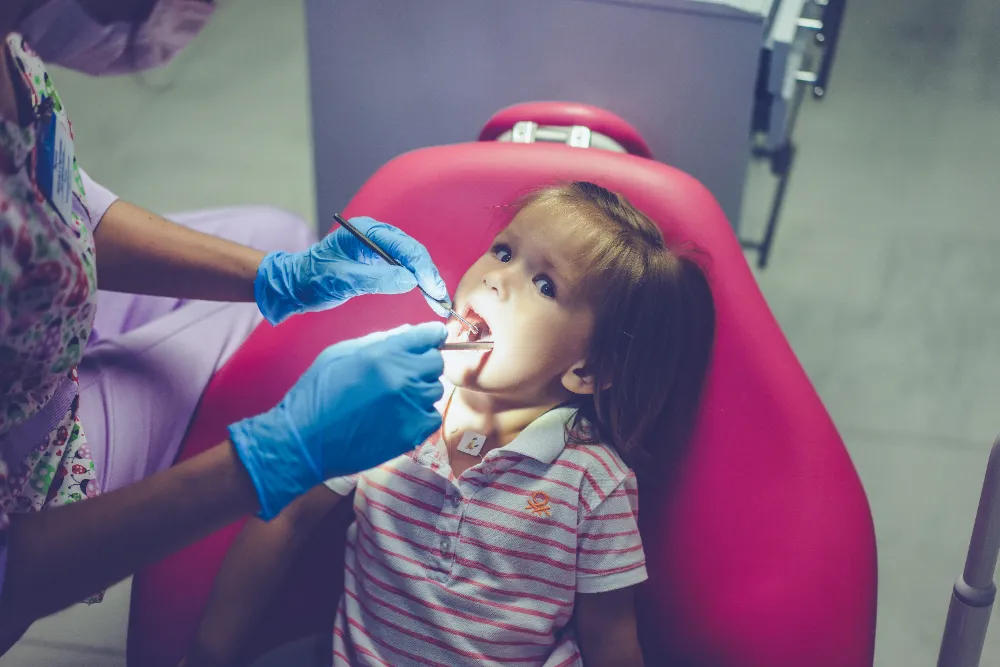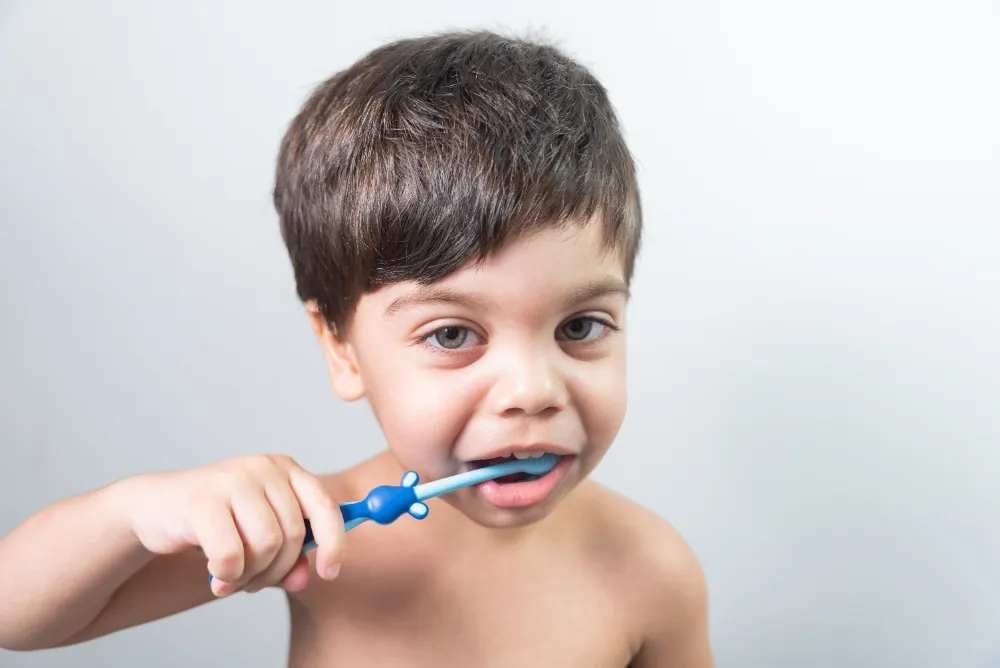The arrival of your child’s first tooth, often called a “milk tooth,” is an exciting milestone in their development. Though small and temporary, these early teeth play a vital role in your child’s health, growth, and their future dental habits. Proper care of milk teeth can help prevent dental issues later on, ensuring that your child grows up with strong, healthy teeth and a radiant smile.
In this article, we’ll explain why caring for milk teeth is essential and how you can take simple steps to protect them. Establishing good dental care early can prevent cavities, alignment issues, and other dental problems in the future.
Importance of Milk Tooth

Milk teeth may seem insignificant because they are eventually replaced by permanent teeth. However, it is important to understand that milk teeth serve several crucial purposes that impact your child’s future health and development.
Primary teeth, while temporary, are critical for your child’s overall health and development.
Here are six key reasons why a milk tooth matters.
- Aids in Speech Development: These teeth help children pronounce words correctly, which is important for clear speech and communication.
- Facilitates Proper Chewing and Eating: Healthy teeth allow children to chew food properly, ensuring they get proper nutrition and indirectly influencing the growth of muscles and jaws.
- Guides Permanent Teeth: These teeth ensure that adult teeth erupt in the correct positions, preventing future alignment problems.
- Helps in Self-Confidence: A healthy smile boosts your child’s self-esteem, encouraging positive social interactions and a sense of pride in their appearance.
- Supports Jaw Development: Teeth help stimulate the jaws to grow properly, maintaining enough space for adult teeth.
- Foundation for Lifelong Dental Habits: Taking care of these teeth teaches good oral hygiene habits early, establishing a healthy routine in adult life.
These tiny teeth are much more than placeholders; they have a big role in your child’s overall health.
Is it Necessary to Treat Milk Tooth?

A milk tooth, despite being temporary, deserves prompt treatment. If left untreated, dental issues in milk teeth can lead to much severe consequences that can affect your child’s overall health.
- Prevent Cavities and Decay: Untreated cavities lead to pain and infections. Early treatment prevents these issues from spreading and causing more harm.
- Maintains Oral Health: Treatment ensures your child’s mouth remains free of infection, which can cause discomfort and hinder day-to-day activities.
- Guides Permanent Teeth: Early treatment ensures adult teeth erupt in the right places, avoiding alignment issues and the need for future orthodontic treatments.
- Prevents Spread of Infection: If left untreated, decay can lead to severe pain and serious infections. Prompt care prevents this.
- Supports Speech and Eating Habits: Healthy teeth are necessary for proper speech and chewing. Dental problems can hinder both of these vital developmental milestones.
- Reduces Future Dental Problems: Treating issues early reduces the risk of needing invasive and expensive procedures later.
- Promotes Better Self-Esteem: Healthy teeth help your child feel good about their smile, fostering a sense of confidence and well-being.
- Encourages Healthy Habits: Treating issues early instills the importance of dental hygiene, setting up your child for a lifetime of good oral health.
By focusing on milk tooth care, you’re not just protecting temporary teeth but laying the foundation for healthy adult teeth.
What Happens if You Don’t Treat Milk Tooth?

Not addressing dental problems in a milk tooth can lead to significant consequences. These problems can affect your child’s oral health in both short term and long term.
- Increased Risk of Tooth Decay: Untreated cavities worsen over time, leading to pain, infection, and possible tooth loss.
- Pain and Discomfort: A decayed tooth can cause significant pain, making it difficult for your child to eat or sleep properly.
- Premature Tooth Loss: Untreated issues may cause early tooth loss, which can result in gaps and misalignment of adult teeth.
- Speech Difficulties: Missing or decayed teeth can affect speech development, making it harder for your child to pronounce words clearly.
- Social and Emotional Consequences: Dental issues can make your child self-conscious about their smile, leading to social withdrawal or embarrassment.
- Spread of Infection: If left untreated, infections can spread to gums, underlying bone and even the jaw, causing severe health issues.
By neglecting your child’s dental health, you risk creating more serious dental issues in the future that could affect their overall well-being.
Social & Psychological Implications of Early Loss of Milk Teeth
The state of your child’s smile has a significant impact on their social and emotional development. Problems with a milk tooth can make them self-conscious, which can carry into adulthood.
- Low Self-Esteem: Children may feel self-conscious about their teeth, impacting their confidence in social situations.
- Social Isolation: Embarrassment about their smile may cause your child to avoid social activities, leading to feelings of isolation.
- Speech Issues: Missing or damaged teeth can affect speech development, making it difficult for children to communicate clearly with others.
- Increased Dental Anxiety: Negative experiences with untreated dental problems can lead to fear of the dentist, which may cause anxiety during future visits.
- Bullying or Teasing: Visible dental issues can lead to teasing or bullying by peers, which can deeply affect your child’s mental health.
- Difficulty in Peer Interaction: Children who feel embarrassed about their teeth may withdraw from socializing, limiting opportunities to form friendships and build social skills.
- Negative Impact on Academic Performance: Speech or dental discomfort can distract your child, making it harder for them to focus in school.
- Long-Term Psychological Effects: Untreated dental problems can have lasting effects on your child’s mental health, contributing to anxiety, depression, or other emotional challenges.
Addressing your child’s dental needs helps them maintain not only good oral health, but also emotional and social confidence as they grow.
Preventing Tooth Decay in Milk Tooth

The best way to protect your child’s milk tooth is through preventive care. Teaching good oral hygiene habits from an early age can help them maintain healthy teeth until they naturally shed.
- Brushing Twice a Day: Use fluoride toothpaste to brush your child’s teeth twice a day. Make sure to brush all surfaces of the teeth and along the gum line.
- Flossing: Flossing helps remove food particles between teeth that brushing alone can’t reach.
- Limit Sugary Foods and Drinks: Limit the intake of sugary snacks and drinks for your child, as they increase the risk of cavities and decay.
- Dental Sealants: Ask your dentist about applying dental sealants to your child’s back teeth. Sealants act as a protective barrier making the teeth less prone to decay.
By following these tips, you’re ensuring that your child’s milk teeth remain healthy for as long as they need to, setting the stage for strong and healthy permanent teeth.
How to Encourage Your Child to Brush Their Teeth
Getting your child excited about brushing can set them up for a lifetime of good oral hygiene. Here are some fun ways to get them involved:
- Make it Fun: Let your child pick their own toothbrush, and choose toothpaste flavors they like. There are many colorful, themed toothbrushes that can make brushing enjoyable.
- Brush Together: Set a good example by brushing your own teeth at the same time. Children love to mimic their parents, so brushing together can be a bonding activity.
- Sing Songs or Use Apps: There are many interactive tooth-brushing apps that play music and track brushing time, making the experience fun and engaging.
- Create a Reward System: Reward your child for brushing consistently. A sticker chart or small incentives can motivate them to keep brushing.
Turning tooth brushing into a fun and positive experience will help your child develop healthy oral hygiene habits that will last a lifetime.
Diet and Milk Tooth Health: What to Feed Your Child

A balanced diet is crucial to the health of your child’s milk tooth.
Foods rich in calcium, vitamins, and minerals help strengthen teeth, while sugary and sticky foods can contribute to cavities.
- Calcium-rich Foods: Dairy products like milk, cheese, and yogurt help build strong teeth and bones.
- Fruits and Vegetables: Crunchy fruits and vegetables, like apples and carrots, help clean teeth while providing essential nutrients.
- Whole Grains: Whole grains are a great source of B vitamins, which help maintain healthy gums.
- Limit Sugary Foods and Drinks: Reduce the intake of sugary snacks, juices, and sodas, which can lead to tooth decay.
Providing your child with a nutrient-rich diet is one of the best ways to ensure their milk tooth remains healthy.
Conclusion
Taking care of milk teeth is more than just a temporary concern—it sets the foundation for a lifetime of healthy teeth. By addressing any dental issues early, practicing good oral hygiene habits, and ensuring regular dental checkups, you can prevent long-term dental problems and ensure that your child’s smile stays bright and healthy. Remember, a healthy smile is a confidence booster and an essential part of your child’s overall well-being.
For expert care and guidance, contact Ivory Dental today and take the first step towards a lifetime of healthy smiles!
FAQs
You can make brushing fun by using colorful toothbrushes, playing tooth-brushing games, or using an interactive app that tracks brushing time with music. Turning it into a bonding activity will also make it more enjoyable.
Yes, it’s completely normal for baby teeth to have spaces between them. These gaps are necessary to accommodate the adult teeth that will eventually come in.
If a tooth becomes loose because of a fall or injury, it’s important to visit a dentist. They can assess the damage and ensure the tooth isn’t infected or causing complications, even if it seems to be in place.
While diet plays an essential role in maintaining healthy teeth, the timing of tooth loss is primarily determined by genetics and age. However, a healthy diet can support strong teeth and a smoother transition to permanent teeth.
If your child is experiencing pain in their tooth, it could be due to a cavity or gum irritation. It’s important to visit a dentist for an evaluation and appropriate treatment. In the meantime, you can give your child pain relief, such as over-the-counter medication, and ensure they’re brushing gently to avoid aggravating the issue.
